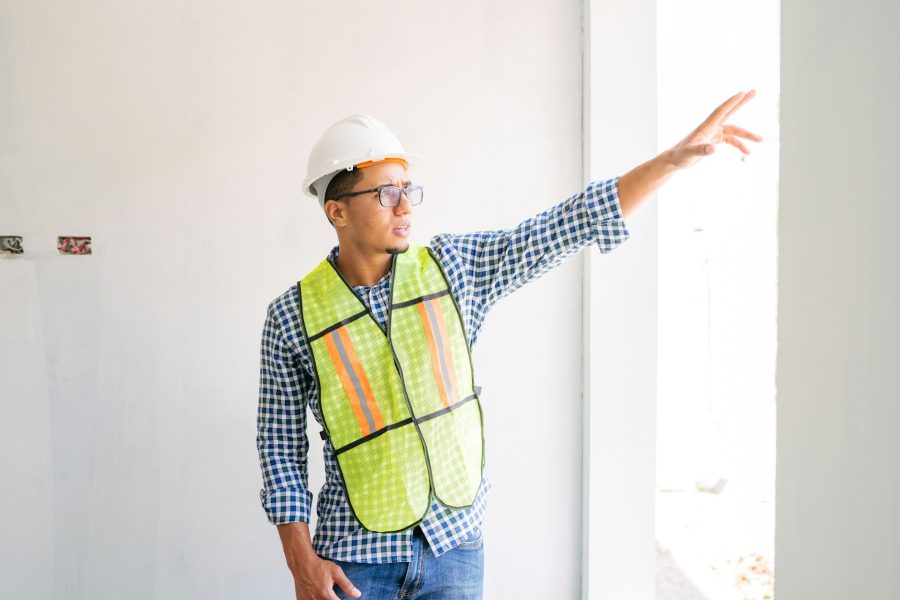The Ultimate Guide to Planning a Home Extension
When it comes to planning a home extension in the UK, it’s crucial to have a solid understanding of the planning process. The first step is to familiarise yourself with the local planning authority in your area. Each local authority has its own set of rules and regulations, so it’s important to research and understand the specific requirements that apply to your project.
One key aspect of the planning process is determining whether your proposed extension falls under permitted development rights or requires planning permission. Permitted development rights allow you to make certain changes to your property without the need for planning permission. These rights vary depending on factors such as the size and location of your property. It’s important to consult with your local planning authority or a professional architect to ensure that your proposed extension falls within these parameters.
If your extension does require planning permission, you will need to submit an application to your local planning authority. This typically involves providing detailed plans and drawings of your proposed extension, along with any supporting documentation required by the authority. It’s important to note that the planning process can take several weeks or even months, so it’s advisable to factor in this timeline when planning your project.
Navigating the planning process can be complex, but with the right knowledge and guidance, you can ensure a smooth and successful home extension project. By understanding the specific requirements of your local planning authority and following the necessary steps, you’ll be well on your way to turning your extension dreams into a reality.
Key Considerations before Planning a Home Extension
Before diving into the planning and execution of a home extension project, it’s important to consider a few key factors. These considerations will not only help you make informed decisions but also ensure that your project aligns with your needs and requirements.
Firstly, it’s essential to evaluate your reasons for wanting a home extension in Liverpool , Manchester or anywhere across the UK. Are you looking to create additional living space for a growing family, or do you simply want to enhance the aesthetics of your property? Understanding your motivations will help you prioritise your goals and make informed decisions throughout the project.
Another crucial consideration is your budget. Home extensions can be a significant investment, so it’s important to establish a realistic budget before proceeding. Research and gather quotes from different contractors to get an idea of the overall cost. It’s also important to factor in any additional expenses such as permits, materials, and furnishings. By setting a budget early on, you can ensure that your project remains financially viable.
Additionally, it’s important to assess the impact of the extension on your property’s value. While home extensions can increase the value of your home, it’s important to consider the potential resale value and the impact on the overall aesthetics of your property. Consulting with a real estate professional can provide valuable insights into the market value of similar properties in your area and help you make informed decisions.
By carefully considering these key factors, you can set a solid foundation for your home extension project and ensure that your goals align with your budget and long-term plans.
Types of Home Extensions
Home extensions come in various forms, each catering to different needs and preferences. Understanding the different types of extensions will help you determine the most suitable option for your property. Here are some common types of home extensions:
- Single-Storey Extensions: This type of extension involves adding an extra room or living space to the ground floor of your property. Single-storey extensions are popular for creating open-plan kitchen and dining areas or additional living rooms. They can significantly enhance the overall living space and functionality of your home.
- Double-Storey Extensions: Double-storey extensions involve adding an extra floor to your property, effectively doubling the available space. This type of extension is ideal for growing families or those looking to add multiple bedrooms and bathrooms. Double-storey extensions can provide ample space for bedrooms, home offices, or even a dedicated entertainment area.
- Conservatories or Orangeries: Conservatories and orangeries are popular choices for homeowners who want to bring the outdoors inside. These extensions are typically made of glass and allow plenty of natural light to flood the space. Conservatories are versatile and can be used as additional living areas, dining rooms, or even home offices.
- Loft Conversions: If you’re looking to maximise the existing space in your property, a loft conversion can be an excellent option. By converting your loft into a functional living space, you can add an extra bedroom, home office, or even a playroom. Loft conversions are a cost-effective way to create additional space without the need for extensive structural changes.
- Basement Conversions: Similar to loft conversions, basement conversions make use of existing space to create additional living areas. By transforming your basement into a functional room, you can add a home gym, cinema room, or even a guest suite. Basement conversions are particularly popular in urban areas where space is limited.
When considering the type of home extension that best suits your needs, it’s important to take into account factors such as available space, budget, and the overall aesthetics of your property. Consulting with an architect or building professional can provide valuable insights and help you make an informed decision.
Hiring Professionals for Your Home Extension Project
Embarking on a home extension project is an exciting endeavour, but it’s essential to ensure that you have the right professionals on board to bring your vision to life. Hiring experienced and reliable professionals will not only save you time and stress but also ensure the success of your project. Here are some key professionals you may need to involve in your home extension project:
- Architect: An architect plays a crucial role in the planning and design phase of your home extension. They will work closely with you to understand your requirements and translate your ideas into practical designs. An architect will also navigate the planning process, ensuring that your extension meets all the necessary regulations and guidelines.
- Structural Engineer: A structural engineer is responsible for ensuring the structural integrity of your extension. They will assess the load-bearing capacity of your existing structure and design the necessary reinforcements. Engaging a structural engineer is essential to ensure that your extension is safe and meets all building regulations.
- Builder/Contractor: Hiring a reputable builder or contractor is crucial for the successful execution of your home extension project. They will oversee the construction process, manage subcontractors, and ensure that the project is completed within the agreed-upon timeline and budget. It’s important to obtain quotes from multiple builders and check their credentials and references before making a decision.
- Electrician and Plumber: Depending on the scope of your extension, you may need to involve electricians and plumbers to handle the installation of electrical and plumbing systems. It’s important to hire licensed professionals who are experienced in working on home extension projects. They will ensure that all electrical and plumbing work is carried out safely and in compliance with regulations.
When looking in to local home extension professionals ,it’s important to conduct thorough research, check references, and obtain multiple quotes. It’s also advisable to draw up a clear contract that outlines deliverables, timelines, and payment terms. By working with a team of experienced professionals, you can ensure a smooth and successful home extension project.
Budgeting for Your Home Extension
Budgeting is a crucial aspect of any home improvement project. Proper budgeting will not only help you manage your finances effectively but also ensure that you make informed decisions throughout the project. Here are some key tips for budgeting for your home extension:
- Establish a Realistic Budget: Before starting your project, it’s important to establish a realistic budget. Research the costs involved in similar projects, consult with professionals, and obtain quotes from different suppliers and contractors. Consider factors such as materials, labour, permits, and any additional expenses that may arise.
- Factor in Contingencies: It’s advisable to include a contingency fund in your budget to account for any unforeseen expenses or changes in scope. A common rule of thumb is to allocate around 10-20% of your total budget as a contingency. This will provide a buffer for any unexpected costs that may arise during the construction process.
- Prioritise Your Spending: Determine your priorities and allocate your budget accordingly. Focus on essential aspects such as structural integrity, quality materials, and professional labour. Consider areas where you can potentially save money without compromising on safety and quality.
- Get Multiple Quotes: Obtain quotes from different suppliers and contractors to ensure that you are getting the best value for your money. Don’t be tempted to automatically choose the cheapest option – instead, consider the quality of materials and workmanship offered by each supplier or contractor.
- Consider Long-Term Costs: When budgeting, it’s important to consider not just the immediate costs but also the long-term expenses. For example, energy-efficient windows and insulation may have a higher upfront cost but can result in long-term savings on energy bills.
By carefully budgeting for your home extension project, you can ensure that your finances are well-managed and that your project remains financially viable. It’s important to regularly review and track your expenses throughout the project to avoid any budget overruns.
Obtaining Necessary Permits and Permissions
Obtaining the necessary permits and permissions is a crucial step in the home extension process. Failure to do so can result in costly fines and even legal issues. Here are some key steps to follow when obtaining permits and permissions for your home extension:
- Research Local Regulations: Each local authority has its own set of rules and regulations regarding home extensions. Research and familiarise yourself with the specific requirements in your area. This information can usually be found on your local planning authority’s website or by contacting them directly.
- Determine if Planning Permission is required: In some cases, home extensions may fall under permitted development rights, which means that planning permission is not required. However, there are certain limitations and conditions that must be met. Consult with your local planning authority or a professional architect to determine whether your proposed extension requires planning permission.
- Submit Planning Application: If planning permission is required, you will need to submit a planning application to your local planning authority. This typically involves providing detailed plans and drawings of your proposed extension, along with any supporting documentation requested by the authority. It’s important to ensure that your application is complete and accurate to avoid any delays or complications.
- Consider Building Regulations: In addition to planning permission, you will also need to comply with building regulations. Building regulations ensure that your extension meets certain safety and quality standards. Your architect or builder will be responsible for ensuring that your extension meets these regulations and obtaining the necessary approvals.
- Party Wall Agreements: If your extension involves work on a shared wall or boundary with a neighbouring property, you may need to obtain a party wall agreement. This agreement protects the rights and interests of both parties and ensures that any work carried out does not cause any damage or disruption.
Obtaining permits and permissions can be a complex and time-consuming process. It’s advisable to seek the help of professionals such as architects or planning consultants who have experience in navigating the planning system. By ensuring that you have all the necessary approvals in place, you can avoid potential legal issues and ensure a smooth and successful home extension project.
Designing Your Home Extension
The design phase of your home extension is where your vision truly comes to life. It’s an exciting opportunity to create a space that not only meets your practical needs but also reflects your personal style and taste. Here are some key considerations when designing your home extension:
- Functionality: Start by considering how you intend to use the space. Are you looking to create an open-plan kitchen and dining area, or do you need additional bedrooms and bathrooms? Understanding the functionality of the space will help you determine the layout and flow.
- Natural Light: Maximising natural light can significantly enhance the overall ambience of your extension. Consider incorporating large windows, skylights, or glass doors to allow ample daylight to flood the space. This not only creates a bright and airy atmosphere but also reduces the need for artificial lighting during the day.
- Material Selection: The materials you choose for your extension can have a significant impact on the overall aesthetics and durability. Consider materials that complement the existing architecture of your property while also providing the desired level of insulation and weather resistance. Consult with your architect or builder to explore different material options.
- Energy Efficiency: Incorporating energy-efficient features into your extension can help reduce your carbon footprint and energy bills. Consider features such as double-glazed windows, insulation, and energy-efficient lighting and appliances. These features not only benefit the environment but can also add value to your property.
- Exterior Design: It’s important to consider the exterior design of your extension to ensure that it blends seamlessly with the existing structure. Pay attention to details such as rooflines, finishes, and materials to create a cohesive and visually appealing look.
- Interior Finishes: The finishing touches of your extension, such as flooring, paint colours, and fixtures, play a crucial role in creating a cohesive and inviting space. Choose finishes that complement your overall design concept and reflect your personal style.
During the design phase, it’s crucial to communicate your vision effectively with your architect or designer. Share your ideas, preferences, and any specific requirements you may have. Collaborating closely with professionals will ensure that the final design meets your expectations and functional needs.
Construction and Project Management
Once the design phase is complete and all necessary approvals have been obtained, it’s time to move on to the construction and project management stage of your home extension. This phase involves overseeing the actual construction process, managing contractors, and ensuring that the project remains on track. Here are some key considerations when it comes to construction and project management:
- Project Timeline: Establish a realistic timeline for your project, taking into account factors such as the size and complexity of the extension, as well as any external dependencies, such as weather conditions. Communicate the timeline clearly with your contractor and regularly review progress to ensure that the project stays on schedule.
- Regular Communication: Maintain open and regular communication with your contractor and any other professionals involved in the project. This will help address any issues or concerns promptly and ensure that everyone is on the same page.
- Quality Control: Regularly inspect the construction work to ensure that it meets the required standards and specifications. Address any concerns or deviations from the agreed-upon design as soon as possible. It’s also important to keep a record of any changes or modifications made during the construction phase.
- Budget Management: Keep track of your expenses throughout the construction phase to ensure that you stay within your budget. Regularly review and discuss any potential deviations or additional costs with your contractor. It’s important to have clear communication regarding any changes that may impact the overall cost.
- Site Safety: Ensure that the construction site is safe and secure throughout the project. Adhere to health and safety regulations and provide any necessary protective equipment to workers. Regularly inspect the site for any potential hazards and address them promptly.
- Project Completion: Once the construction is complete, conduct a final walkthrough with your contractor to ensure that all aspects of the project have been completed to your satisfaction. Address any outstanding issues or concerns before finalising the project.
Effective project management is crucial for the success of your home extension. By staying organised, maintaining clear communication, and regularly reviewing progress, you can ensure that your project is completed on time, within budget, and to your satisfaction.
Conclusion and Final Tips
Planning a home extension or home improvement in Lancashire , Merseyside, Cheshire, Yorkshire or across the UK may seem like a daunting task, but with the right knowledge and guidance, it can be a rewarding experience. By understanding the planning process, considering key factors, and hiring the right professionals, you can embark on a successful home extension project.
Remember to establish a realistic budget, obtain the necessary permits and permissions, and carefully design your extension to ensure that it meets your functional and aesthetic needs. During the construction phase, effective project management and regular communication with your contractors and professionals will be key to a successful outcome.
Lastly, don’t forget to enjoy the process and envision the transformation that your home will undergo. A well-planned and executed home extension can not only enhance your living space but also add value to your property. With the ultimate guide to planning a home extension in the UK at your disposal, you’re well-equipped to embark on this exciting journey.
Share It on :





